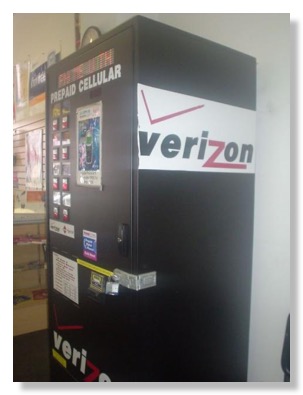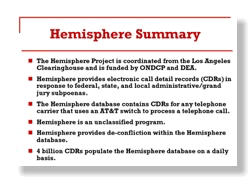The Societal Cost of Unrestricted Sale of Burner Phones
However, if at the same Walmart you want to buy Sudafed you will find that the law allows for the sale of pseudoephedrine only from locked cabinets or behind the counter. The law also:
- limits the monthly amount any individual could purchase
- requires individuals to present photo identification to purchase such medications
- requires retailers to keep personal information about these customers for at least two years after the purchase of these medicines.
As we wrote last month, CVS is voluntarily beginning to limit - not forbid - sales of nail polish remover because the acetone in it is also key to the crystal meth production process. However there is no sign that they are limiting sales of “burner” phones.
In its reply comments to Docket 13-111 on wireless devices in prisons, Verizon Wireless commented on “brier” phone restriction issue. This is the first time we are aware that CTIA or any of its major members has publicly addressed the feasibility of restricting sales of “burner” phones. VZW told FCC:
One commenter suggested that the Commission consider placing requirements on the type of information and the validity of information carriers obtain in providing service to customers purchasing prepaid devices. MSS Comments at 13-14. See also Indiana Department of Corrections Comments, GN Docket No. 13-111, filed July 17, 2013 (“Indiana DOC Comments”) at 1 (questioning whether selling such devices to anonymous persons is desirable public policy). While MSS acknowledges the legitimate need of some users, such as battered spouses, to obtain such devices anonymously, it urges the Commission to consider requiring identification validation for at least some purchasers of prepaid devices. Given that such a requirement would necessarily impact users other than contraband device users, this suggestion is beyond the scope of this proceeding and should not be considered in this docket.
So VZW feels that since restrictions might impact some legitimate users, we should not even think about restrictions that may have a balance of pluses and minuses. As can be seen in the picture at right, VZW at one time even used vending machines to sell “burner” phones! If Congress had similarly thought that the need of the public to buy Sudafed outweighed the benefits of preventing deaths through methamphetamine abuse, then we would not have the “burdens” we face in buying Sudafed today. Had only the Sudafed makers been represented by CTIA we might be able to find Sudafed vending machines on street corners for the convenience of those with a late night case of a runny nose!
But a September 1 NY Times article entitled “Drug Agents Use Vast Phone Trove, Eclipsing N.S.A.’s” reveals another cost of the unrestricted sale of burner phones. The article describes how AT&T sells to DEA access to “Hemisphere” - a huge database of “metadata” about the phone calls of Americans. As opposed to the NSA database, Hemisphere “covers every call that passes through an AT&T switch — not just those made by AT&T customers — and includes calls dating back 26 years”.
Why does DEA needs such a comprehensive, and no doubt costly system? The article goes on to say:
The Obama administration acknowledged the extraordinary scale of the Hemisphere database and the unusual embedding of AT&T employees in government drug units in three states.But they said the project, which has proved especially useful in finding criminals who discard cellphones frequently to thwart government tracking, employed routine investigative procedures used in criminal cases for decades and posed no novel privacy issues. (Emphasis added.)
Thus because the cellular industry is not willing to consider any compromise to the unrestricted sale of “burner” phones we must live with a large invasion of privacy by DEA and its state and local partners and the potential abuse of this information. It appears that AT&T has even turned this into a new secret, but presumably profitable, product line!
Wouldn’t modest regulations on “burner” phone sales, perhaps similar to the above stated DEA rules on Sudafed sales, be a more reasonable balance of public interests? If there is ever a cell phone triggered IED incident in the US, there will be a large outcry for such regulation and the outcome will not be as moderate and balanced as what would be feasible today in a less frantic atmosphere. We urge the initiation of a deliberate dialogue on this topic to balance all legitimate needs. Do we really need unrestricted sales of bags full of anonymous prepaid “burner” phones?





![Validate my RSS feed [Valid RSS]](valid-rss-rogers.png)

